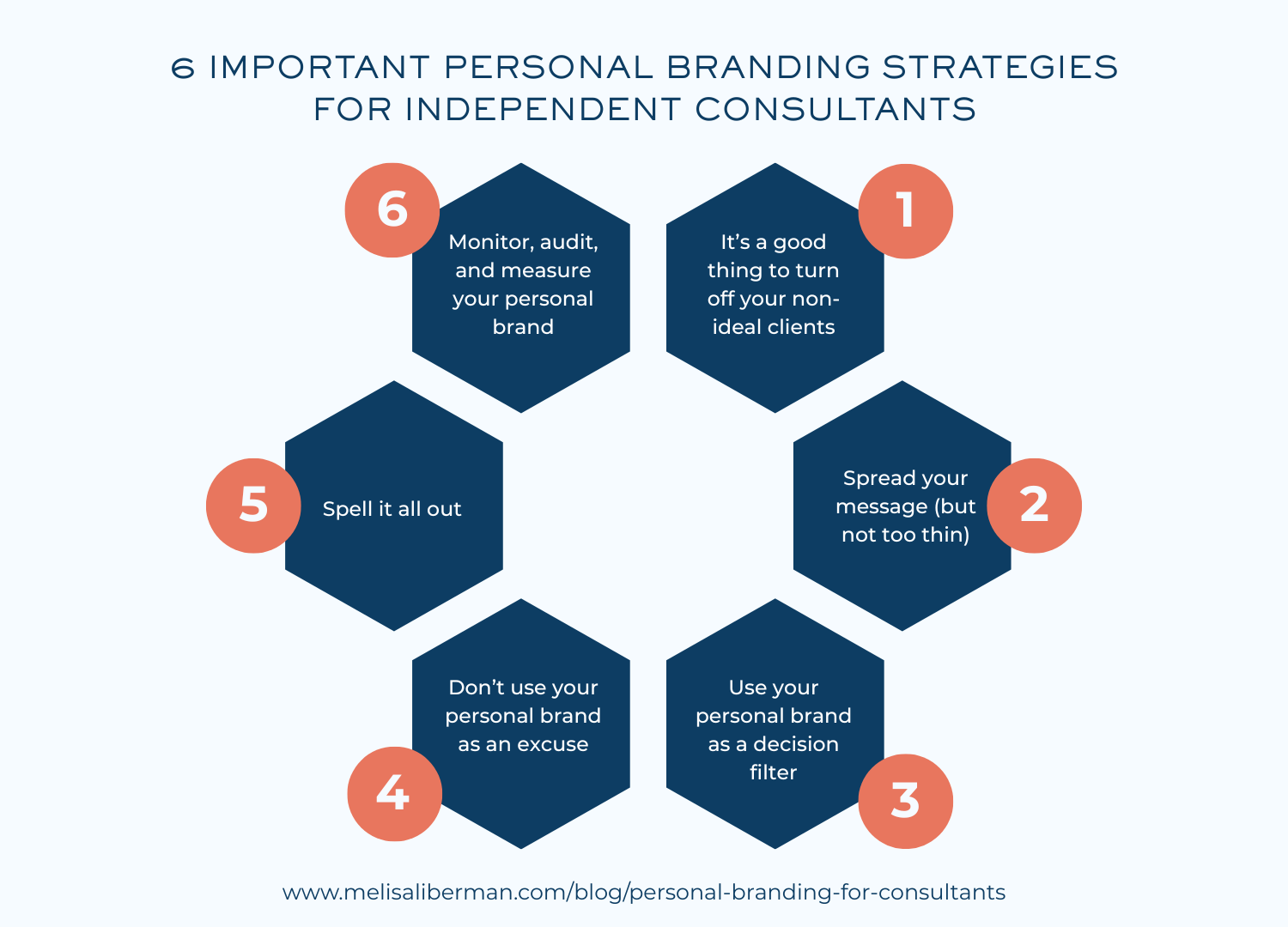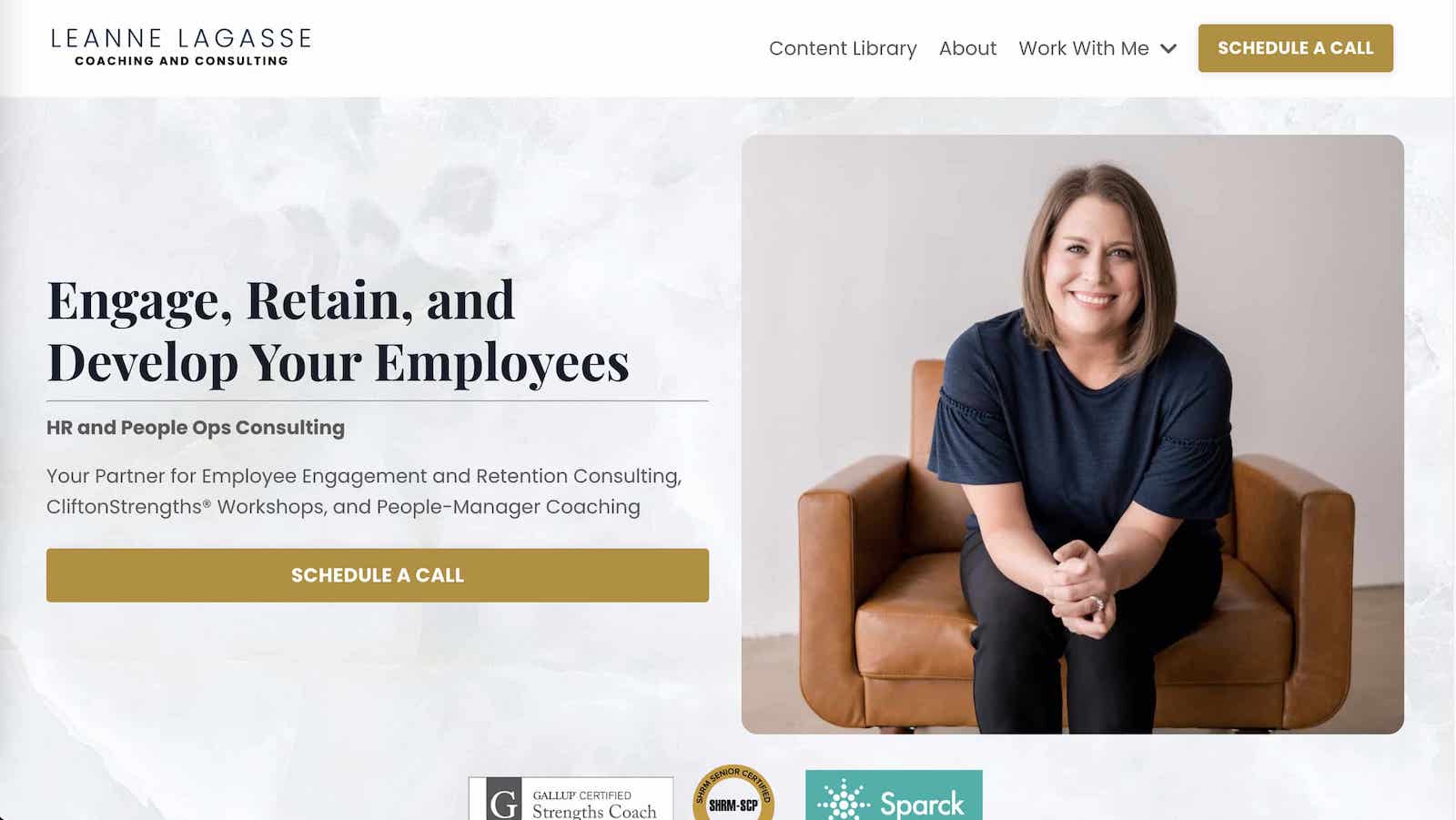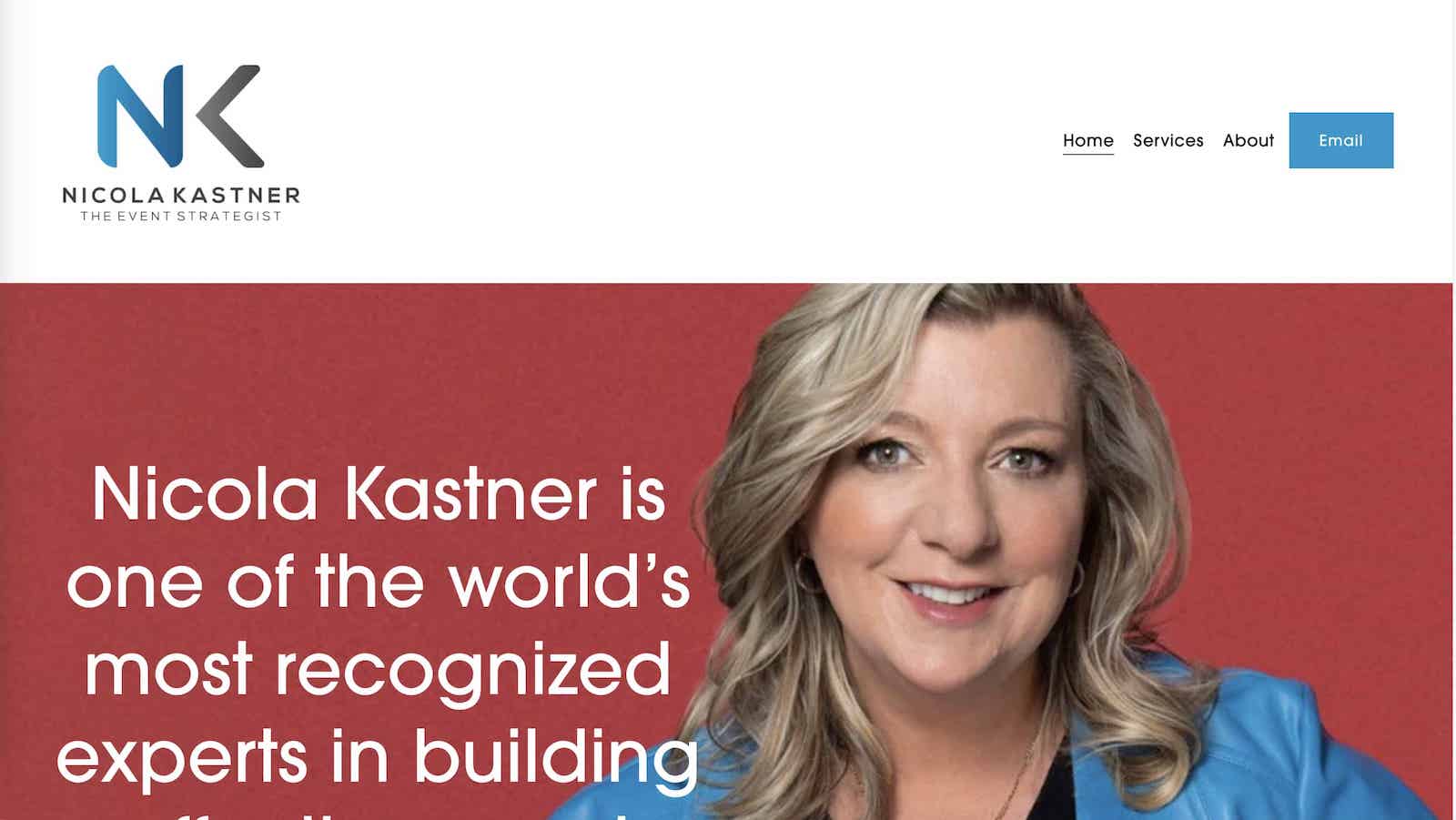The Ultimate Guide to Personal Branding for Consultants
Jan 19, 2024
Estimated time to read: 15 minutes
Download the article as a PDF:

Authors:
Melisa Liberman, Private Coach for Independent Consultants and
Jennifer Lemmert, Independent Consultant who specializes in PR and Executive Communications
Table of contents
- Introduction
- What is personal branding for consultants, and why is it important?
- How is personal branding for independent consultants different?
- What is the difference between personal branding and marketing?
- What are the benefits of a strong personal brand for your independent consulting business?
- What should a personal brand include?
- Our top 3 personal branding tips for independent consultants:
- How to build a personal brand for your consulting business step by step
- 5 Important personal branding strategies for independent consultants
- What are some good consulting personal branding examples (and why)?
- Get help building a world-class consulting personal brand
- Turning your personal brand into a world-class independent consulting business
- Final thoughts
Introduction
As an independent consultant, you’re constantly hearing how important personal branding is. You hear advice like:
- “You are your brand.”
- “It’s important for your brand to stand out.”
- “You need to create a personal brand to differentiate yourself.”
But, this advice can be confusing.
What does it actually mean to create a personal brand?
It can be confusing to know exactly what a personal brand is and how to implement it for your independent consulting business. So, in today’s article, with the help of my client Jennifer Lemmert who is a PR and Communications Expert, we’ll demystify personal branding for consultants.
What is personal branding for consultants, and why is it important?
Personal branding for consultants is shorthand for who you are, what you offer, and why you are uniquely positioned to serve your target consulting clients. It's more than the content you create, your image, or how you talk about yourself.
It's all those things working together.
Personal branding for consultants supplements the service offerings that you have out there for clients.
And, personal branding for consultants is important because of it:
- Helps you stand out to attract the types of clients and people you want to work with.
- Helps you avoid the trap of putting out messaging that’s overly generalized in that you can do anything for anybody.
- Helps lay the framework for your value proposition, so you’re specific about what you bring to the table.
And, ultimately your personal brand will help you stand out from the competition (both external and internal options) so you can land more consulting clients and command higher fees.
Establishing a personal brand doesn’t mean that you’ll have to keep your branding as-is or that you can’t pivot what you do as an independent consultant.
You can always evolve over time because you, as a person, are evolving over time, and your passions, skillset, and expertise are evolving over time too.
But starting you have to have a starting point.
How is personal branding for independent consultants different?
Personal branding for independent consultants is different than personal branding for employees or larger business owners in that your branding isn’t centered around another company.
The personal branding for the independent consultant is centered around you.
If you think back to when you were in corporate, your brand may have centered around the company you worked for or even the specific business unit, division, or team you were on.
Very few people really differentiate who they are and what they uniquely bring to the table when you're in that corporate.
Now when you're an independent, you have to put an emphasis on your personal branding from a sense of who you are:
- The value you bring,
- your skills,
- your personality,
- your expertise, and
your experience.
Personal branding is important because otherwise, why would why would a client hire you over somebody else?
Very few consultants can offer something that no one else out there can offer. Right?
So the client has choices. Your personal branding as a consultant can help them understand why they want to hire you and pay your consulting fees, even if they’re higher or substantially higher than other options.
And, with this, you’ll want to avoid the most common pitfall which is to disregard the importance of personal branding.
What is the difference between personal branding and marketing?
To answer this question, let’s look at the textbook definition of marketing. Per the American Marketing Association, marketing is the activity, set of institutions, and processes for creating, communicating, delivering, and exchanging offerings that have value for customers, clients, partners, and society at large.
Based on this definition, you can see that personal branding is a foundational element to marketing.
Personal branding focuses on your positioning in the market. It’s the description of your values, your unique approach, and what you bring to the table as a person and a professional.
Then, your marketing processes leverage your brand in order to attract new clients and retain your existing clients.
What are the benefits of a strong personal brand for your independent consulting business?
The benefits of a strong personal brand for your independent consulting business are:
- You solidify a reputation that’s sought after for what you do, and as a result, cut down on the need for outbound lead generation. Clients come to you.
- You stand out from other solutions your ideal clients could select, either internal and/or external options, and make your sales process easier and close rate higher.
- You become known for the problems you solve and stand out as the go-to expert who can command higher fees.
- Helps you avoid becoming a commodity, in which case you end up competing for business based on cost.
- When you’re sought after as an expert in your field/industry, you’re sought after for coveted speaking opportunities. Speaking is one of the fastest ways to effectively fill a consulting pipeline with high-quality and higher-paying leads.
What should a personal brand include?
There are 11 key elements of a personal brand for consultants. These elements are both part of your personal brand and also a way to reflect your personal brand to your target audience.

1. Clear messaging on what you want to be known for (and sought after)
Define what you want to be known for and sought after for. What are the topics that you want to be seen as the go-to-expert? Do you want to be known as the global leader in that area? Or, do you want to be known in your local community? Or, does the location not matter to you? Get clear on the problems you solve and what you want people to think of you when they need their specific problem solved.
2. Your brand promise or value proposition
Your brand promise or value proposition is a summation of the benefits you deliver to your ideal clients.
3. Positioning
This is the description of how you want to be perceived by people in the marketplace, including your ideal clients, potential referrers, people who influence your ideal clients, and those generally in your target market.
For example, you may position yourself as:
- Executive-like, peer of a C-level executive; exclusive; rare
- Roll-up-sleeves, accessible, collaborative
4. Your values
When someone works with you, they will get someone who shares their values. What do you stand for? What does your company stand for?
What are your values and what do you want clients to say about working with you?
5. Your differentiation
Your personal branding as a consultant includes all the characteristics, experience, background and personality that set you apart from other consultants or internal resources who could do similar work to what you deliver.
6. Your offline presence
Your personal brand as a consultant includes your offline presence. Think about how your outward appearance, mannerisms, and the way you carry yourself reinforce the personal brand you want to convey and exude.
7. Your online presence
Your personal branding as a consultant includes all of your online presence, including but not limited to your website, your LinkedIn profile, your social media accounts, your Zoom background, your Slack profile, etc.
You want to be sure that your online presence is consistent with your positioning, values, and value proposition.
8. Your consulting offer
Your personal branding as a consultant extends to the offer(s) that you have developed as part of your business. You’ll want to align the level of access to you, the type of deliverables you create, the amount of day-to-day interaction, the balance of advising vs. executing, and other characteristics of your service offering(s) to your personal brand. And, in return, your service offering(s) can inform the direction of your personal brand as well.
9. Your business operating policies
Your personal branding as a consultant flows into your business operating policies, including response times, methods of interacting with you, ways to access you, how you handle vacations and time off, your office hours, the types of proactive communications you send to your potential clients, clients, referrers, and network.
10. Your deliverables
The appearance and types of deliverables are also a way to convey and portray your personal brand. Think about how you want to be perceived as it relates to your deliverables.
11. Platforms and forums
Identify the groups, organizations, platforms, and forums that align to your personal brand. Know which platforms, organizations, groups, and forums are NOT aligned to your personal brand. Knowing this part of your personal brand will help you be in the places that reinforce your personal brand, and avoid showing up in places (virtual or in person) that don’t align with the way you want to show up.
Our top 3 personal branding tips for independent consultants:
Personal branding tip #1: Define your personal brand even if it feels like a hard or intangible
Get clear on your personal branding as part of your routine as a consulting business owner. You want to make sure you are intentionally defining and managing your personal branding so it reflects the image, values, and energetics you want to portray to your target audience.
Personal branding tip #2: Make your personal brand visible
Your personal brand is not just something to define, but it’s also something to implement and iterate. Don’t define your personal brand and then check the box that it’s done.
Implement it. Show up consistently on whatever platform or forums you choose as part of your business model.
Personal branding tip #3: Treat your personal brand as a living entity (versus fixed)
Review and refresh your positioning periodically, as you grow, your skills and experience grows, the types of clients and types of engagements evolve. Don’t worry about shifting directions. Your personal brand doesn’t need to be something that doesn’t change or pivot.
How to build a personal brand for your consulting business step by step

Step 1 - Define your personal brand
To define your personal brand, you can:
- Brainstorm the answers to each of the 10 elements of a personal brand for consultants (above).
- Identify those brands and people who you admire. When you think about the brands that you admire, what is it about those brands that inspire you?
- Interview friends, colleagues, peers, past clients, referral partners, and others who can give you feedback on what makes you stand out and what they perceive regarding the 10 elements of your personal brand.
- Test your personal brand. Refine your personal brand through your interactions.
Step 2 - Put your personal brand into action
Decide how, when and where you will demonstrate your personal brand.
For example,
Your infrastructure:
- Your website
- Your LinkedIn profile
- Your tagline
- The format of your deliverables
- Your email signature
- Social media profiles
- Profiles for communication tools (e.g. Slack)
Your visibility mechanisms:
- Your annual speaking calendar
- The events you plan to attend each quarter
- The way you attract an audience of potential clients, referral partners, and/or collaborators
- The method by which you maintain relationships and stay “top of mind” with your audience
- Your elevator pitch
- Your media kit
- Your podcast
- Your blog, book, articles, and other pieces of content
- Your networking approach
- The tone of your communications
- Types of thought leadership
- Forums for your thought leadership
Step 3 - Adapt your personal brand
Adapt your personal brand as you, your company, and your ideal clients evolve.
Understand that personal branding is not one-and-done.
Evaluate your personal brand year over year and adapt to new directions you want your company to take and/or changes in your personal life.
You're always evolving as a consultant and how you talk about how you’re evolving.
6 important personal branding strategies for independent consultants

1. It’s a good thing to turn off your non-ideal clients
When you try to be all things to all people, you end up watering down your message and becoming a commodity. You won’t be known for anything specific, and your positioning will turn into a jack of all trades.
It’s common for independent consultants to worry about turning off potential clients. But, when you take a cautious, “be likable and relatable” to all, you end up fading into the sea of consultants and not standing out.
Ask yourself, how can you be clear about who you help and how can you clearly turn away those who you don’t help.
Don’t be afraid. Taking a strong stance will benefit your business and lead to a much more robust pipeline of ideal clients.
2. Spread your message (but not too thin)
Create and execute a plan to make your personal brand and thought leadership visible. Ideally, you’ll select the intersection between the types of platforms or forums that you enjoy working on (e.g. speaking virtually, writing articles, speaking in person, etc.) with the types of platforms/forums where your ideal clients congregate.
3. Use your personal brand as a decision filter
Use your personal brand as a filter for the decisions you make for your business - everything from the offers you make, to what’s included in your offers, to your pricing, and to the number of hours you choose to work.
4. Don’t use your personal brand as an excuse
Defining your personal brand is NOT a prerequisite to you landing new client work. While it’s important to define and continuously refine your personal brand, it should never be a priority over you doing the work to generate new leads, sell new business, and deliver for your clients.
5. Spell it all out
While it’s important to use industry-specific terminology, make sure that your messaging is clear. Don’t assume your ideal client understands what you’re talking about. Be clear. Avoid using vague, unclear language. Spell it all out so your clients can understand, with just a scan, what you do and how you help.
6. Monitor, audit, and measure your personal brand
Monitor, audit, and measure your personal brand on a regular basis, to evaluate your progress.
Monitor your personal brand - Set up alerts for your name and company name so you're aware every time you’re mentioned
Audit yourself - Google yourself, review your online presence, and look at your presence with fresh eyes every quarter or so. Identify anything that is out of alignment with your personal brand, and determine the level of impact to set a priority for updating it.
Measure - Keep track of your personal branding and reputation management activities. Tie those to lead generation, whenever possible, so you know what activities are most impactful for creating leads and warming up your audience.
Additional resources
- Take the 5-Part Personal Branding Assessment for Independent Consultants
- Listen to Episode 076 of the Grow Your Independent Consulting Business Podcast - Personal Branding for Consultants (& more) with Jennifer Lemmert.
What are some good consulting personal branding examples (and why)?
Here are some examples of good personal branding for consultants:
Example 1 - LeAnne Lagasse

What makes it a good personal brand?
LeAnne’s website is an example of a good personal brand for consultants because:
- It’s clear - it’s clear that she helps her clients engage and retain their employees.
- It includes searchable and sought-after terms - Gallup Strengths and Sparck Certified Partner.
- Her imagery conveys her personal brand and approach - from her photo, you can tell she’s approachable and collaborative.
- She keeps the message simple - LeAnne has multiple options and many different types of consulting offerings for a variety of local and national clients. Yet, she keeps her message on the website clear and concise and doesn’t turn her message into a full-blown menu. She focuses her online message, through this website, on attracting her ideal clients.
Example 2 - Nicola Kastner

What makes it a good personal brand?
Nicola’s website is an example of a good personal brand for consultants because:
- She owns her expertise and reputation - I find so many independent consultants water down their expertise. They do so for a variety of reasons - trying to be humble, feeling insecure, experiencing imposter syndrome, and worried they’re wrong about themselves and their capabilities.
- She’s clear about what she does, including the problems she solves and who she solves the problems for - Nicola’s website is very clear about the type of work she does (primarily). Yes, she offers other services from time to time, depending on the client, the timing, and whether or not she has an interest in the type of work the client is requesting. But, her website is narrowed down and very clear for an ideal client to recognize themselves in the text and examples.
- She demonstrates her values - through the imagery and words, Nicola’s values are clear. She is professional, data-driven, and strategic.
Get help building a world-class consulting personal brand
For help building a world-class personal brand as a consultant, here are several resources:
1. Personal Branding for Independent Consultants episode on the Grow Your Independent Consulting Business podcast
As an independent consultant, you represent both yourself and your business.
Personal branding is usually defined as who you are, your mission, your values, and what makes you unique and distinct in your niche. Business branding, on the other hand, is usually defined by your assets, such as the logo, website, and social media handles.
In this episode, I drill into personal branding for independent consultants. This topic is commonly misunderstood, misapplied, or overlooked by consultants, yet it's an important foundational aspect for IC businesses.
2. Building a StoryBrand: Clarify your message so customers will listen by Donald Miller
Building a StoryBrand provides a step-by-step blueprint, along with numerous real-life examples for you to define and refine your personal brand and messaging. I go back to it once a year to refresh my own messaging, and often recommend it to my coaching clients as a supplement to the work we do together.
3. Reinventing you, with a new preface: Define your brand, imagine your future by Dorie Clark
While this book is geared toward full-time, corporate executives, it does apply to you as an independent consultant and business owner. I recommend you read it and implement the recommendations from two perspectives:
- Think about the questions Dorie asks from the perspective of you the CEO of your business.
- Also, use the book as a way to recognize where your self-identity is still connected to you being a corporate employee, so that you can fully replace that past version of yourself (the employee) with the new version of yourself (the consultant and business owner).
4. A Winning brand: How to build a powerful, personal brand in today's modern, digital world by Kraig Kleeman
Don’t let the 70’s vibe of this book turn you off. Kraig Kleeman’s book is packed with actionable tips, strategies, and exercises that you can use to bring your personal brand to life.
5. Take the 5-Part Personal Branding Assessment for Independent Consultants.
Want to stand out in your industry so leads come to you? Take the 5-Part Personal Branding Assessment specifically created for you as an independent consultant. Uncover the specific areas to improve your brand so it stands out and sets you apart from other consultants.
Turning your personal brand into a world-class independent consulting business
For help clarifying your personal brand and integrating it into your independent consulting business so you’re known for and sought-after for what you do, I can help.
I help my independent consulting clients build and market their own unique, profitable consulting brands so they make the income and impact they didn’t realize was possible.
Click here for more information and to apply to work with me.
Final thoughts
Branding is so much more than a logo and design of your website. It’s about the professional reputation you want to cultivate, so you become sought after for what you do by ideal clients you can’t wait to work with.
It’s common for consultants to be concerned that they’ll make a mistake and damage their professional reputation and personal brand.
It’s also common for consultants to want to overperfect their message. Then, as a result, you end up in a perfectionism cycle and aren’t visible at all.
Err on the side of being seen, more often than you think is necessary or tolerable.
Put yourself out there in creative ways to be known for, and ultimately sought after for what you do.
Test, refine, and iterate. This isn’t a high-stakes game. This is a process by which you evolve and improve your personal brand until you get the results you want - to be sought after for what you do, and have a steady flow of ideal clients who can’t wait to have you help them solve the problems you love solving.







